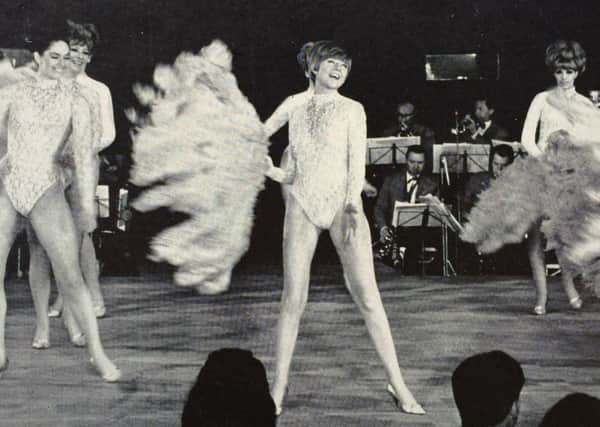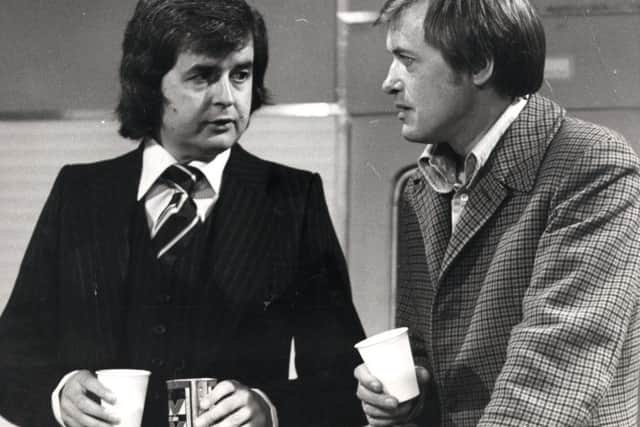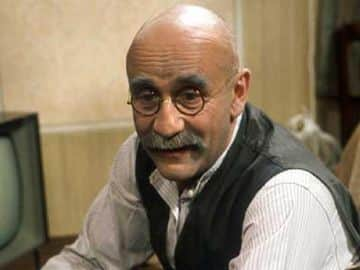Pick of what was on TV 50 years ago


Some readers won’t have seen black and white TV. They won’t have had the choice of only three channels.
On hearing this, the kids said in disbelief: “Granddad, how in earth did you manage?”
Advertisement
Hide AdAdvertisement
Hide AdQuite well, as I remember. Most of the shows were actually worth watching! Let’s look back 50 years to some programmes that were new in 1966.


January 5 saw the launch of the police series Softly, Softly, in which Detective Chief Inspector Charlie Barlow (Stratford Johns) and Detective Inspector John Watt (Frank Windsor) were “promoted” by the BBC from the Lancashire-based Z Cars series to a regional crime squad in south-east England.
The new series of 50-minute episodes was directed by former BBC scenic designer Ridley Scott, who was to become one of Hollywood’s most successful directors with iconic films like Alien, Blade Runner, Thelma and Louise and, most recently, The Martian. Softly, Softly ran for 120 episodes until 1969, when it was revamped as Softly, Softly Task Force for a further 149 shows.
The programme that dominated the audience figures in 1966 was a most unlikely contender. It starred 68-year-old Kathleen Harrison as Mrs Thursday, a Cockney cleaning lady who inherited her millionaire employer’s mansion, his butler and his business empire.
Advertisement
Hide AdAdvertisement
Hide AdMrs Thursday, a comedy drama by Ted Willis, started on the ITV network on March 16, 1966, and ran for 38 episodes until Kathleen Harrison called it a day. In private life, the dear lady was fed up with being recognised by all and sundry every time she left her house!


March 10, 1966, saw the start of the ground-breaking Frost Report on BBC1, with David Frost putting his satirical focus on various topics, which included Authority, Class, Sin and Crime. Among many memorable sketches were John Cleese’s Silly Walks (later to reappear in Monty Python) and the one with Cleese, Ronnie Barker and Ronnie Corbett looking up and down at each other’s social positions. The show ran for 28 episodes, but changed the stance of sketch shows for a generation.
On July 6, ITV screened Cilla at the Savoy, which Brian Epstein had made in colour, to introduce Cilla Black to America. But we could only see it in monochrome.
It was an eye-opener for viewers who thought the girl was merely a singist, as her friend Ken Dodd would say, for here was Cilla in numbers with the Peter Gordeno dancers and showing the best pins on the stage.
Advertisement
Hide AdAdvertisement
Hide AdThe photo of Cilla on this page is from a promotional brochure for the show, signed to me by the lady herself during her 1966 summer season at the Blackpool ABC. Could the picture have been used as a marker for Sheridan Smith in last year’s drama series, Cilla?


(Cilla couldn’t believe my name was Barry Band. She thought I’d made it up for my record review column!)
Every Sunday, from June 19 to August 7, Blackpool was “on the box” with the live transmission of The Blackpool Show from the ABC Theatre.
It was the year Tony Hancock was booked as compere. But he had personal problems and only did two shows. Or was it three?
Advertisement
Hide AdAdvertisement
Hide AdThe sitcom launch of 1966 came on July 22, when the nation was somewhat gobsmacked by the mouthy Alf Garnett, played by Warren Mitchell.


It was, of course, Till Death Us Do Part, Johnny Speight’s East End window on the world of the reactionary, racist West Ham supporter. Dandy Nichols was Alf’s long-suffering wife Else – who he often called Silly Old Moo – while Una Stubbs was his daughter Rita and Anthony Booth her husband Mike.
There were 54 episodes spread over nine years and an unknown number of headlines caused by the statements of chairman Alf. A sequel, In Sickness and Health, with Alf as a belligerent pensioner, ran for 47 episodes from 1985-92.
The big viewing jamboree of 1966 was the World Cup. BBC1 and ITV shared the coverage until the England v Germany final on August 31, which both channels screened.
Advertisement
Hide AdAdvertisement
Hide AdWhich channel had the most viewers? The BBC claimed 26 million stayed with them until those immortal words by commentator Kenneth Wolstenholme: “They think it’s all over – it is now” as Geoff Hurst made it 4-2 for England.
But the 26 million figure only earned the Beeb 13th place in the week’s ratings. TAM – Television Audience Measurement – only metered homes that had a full choice of channels (BBC1, BBC2 and ITV) on their telly! The system changed in 1980.
The landmark TV drama of the decade was Cathy Come Home, broadcast on November 16, 1966, in BBC1’s Wednesday Play slot.
It was written by Jeremy Sandford, directed in documentary style by Ken Loach, and starred Carol White and Ray Brooks as a couple evicted from their home, living rough and having their children taken off them.
Advertisement
Hide AdAdvertisement
Hide AdThe powerful play boosted support for the new charity Shelter and influenced the future social welfare system. Even 32 years later, Radio Times readers voted it the best single TV drama.
A few snips from ‘66: Dr Finlay’s Casebook was midway through its 10-year run, Miss World 1966 had the biggest audience of the year, Corrie was only at number six and The Morecambe and Wise Show, 15,
Woody Allen hosted a Hippodrome variety show and had a boxing match with a kangaroo, a Sunday afternoon ‘must’ was the Batman serial, the second series of The Likely Lads was shown, and The Monkees arrived from America.